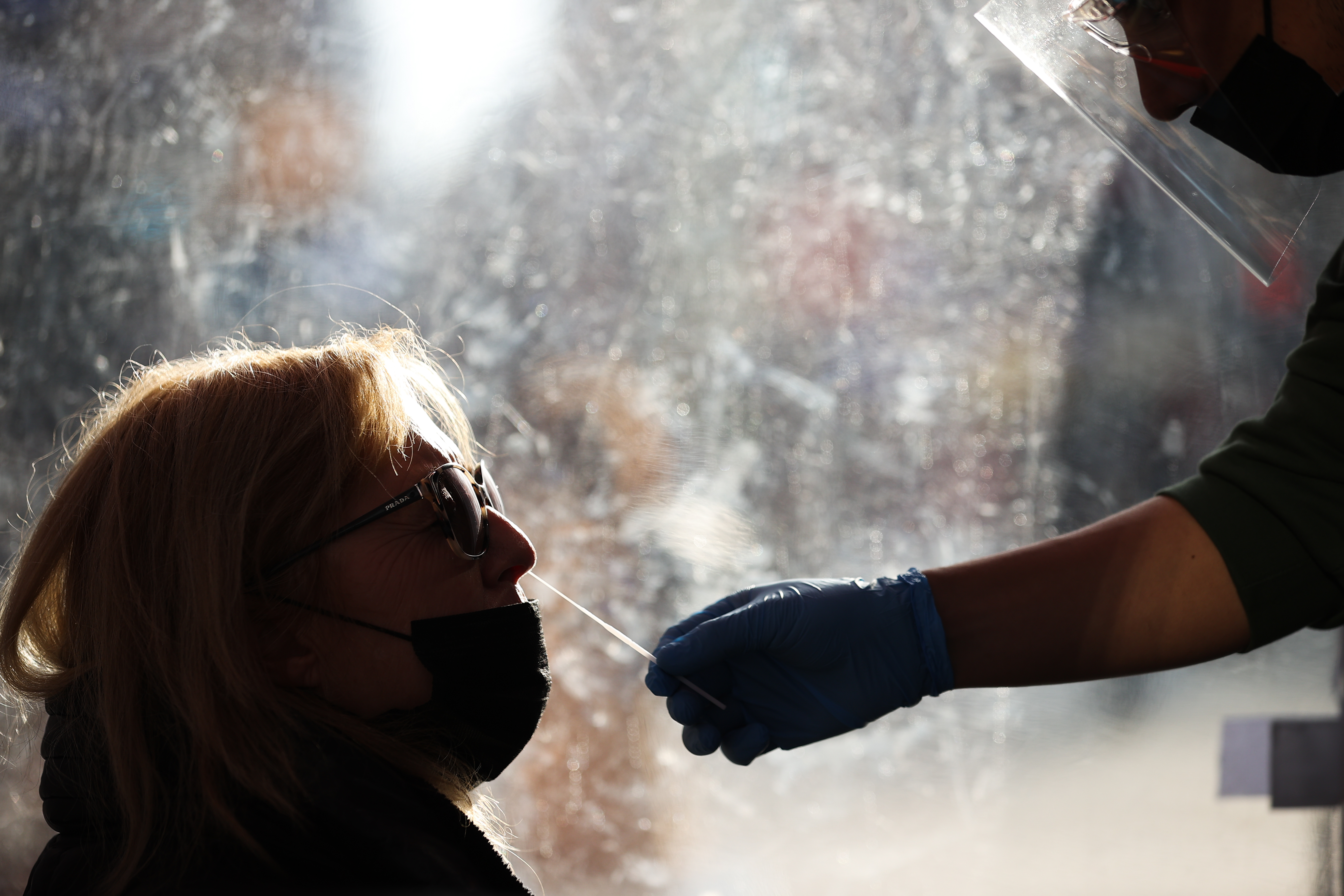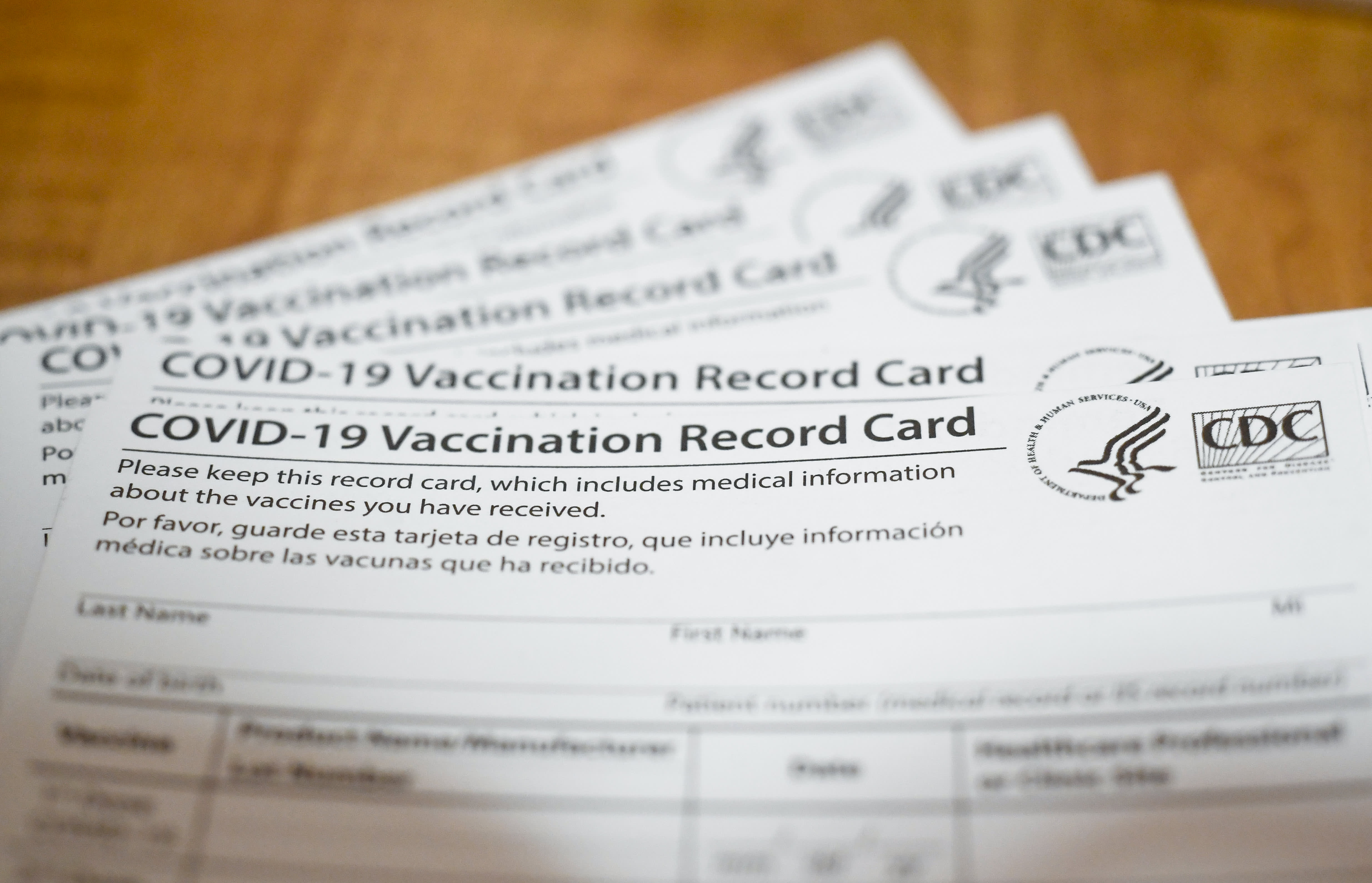Health officials in Illinois reported the state's first case of the omicron variant in a Chicago resident Tuesday.
The case was reported in a fully vaccinated city resident who had also received a booster dose but was visited by an out-of-state traveler who also tested positive for the variant. The resident did not require hospitalization, is improving and has been self-isolating since their symptoms began, officials said.
“While unsurprising, this news should remind Chicagoans of the ongoing threat from COVID-19, especially as families prepare to come together over the holidays,” Chicago Department of Public Health Commissioner Dr. Allison Arwady said in a statement. “We know how to slow the spread of this virus: get vaccinated, get boosted, get tested if you have symptoms or have been in contact with someone with COVID-19, and stay away from others if you test positive. Wear a mask indoors, avoid poorly ventilated spaces, practice social distancing, and wash your hands.”
Health officials had been preparing for the variant to be detected in both the city and state this week.
Arwady said earlier in the day that test results are currently pending for city residents who are known contacts of out-of-state or out-of-country omicron variant cases.
"We are following multiple individuals who we know had exposures, whether they were traveling in the U.S. or even internationally, and we have a pretty robust way to share information in a way to protect privacy, but allow us to do case investigation or contact tracing, including over state boundaries," she said.
In a Facebook Live Tuesday, Arwady said the city has had a plan in place for once the variant was identified.
So far the variant has already been detected in at least 19 U.S. states. The Illinois case now lifts that total to 20.
On Saturday, Wisconsin recorded its first case of the highly mutated omicron COVID variant in a resident who, according to the health department, recently traveled to South Africa.
On Thursday, Minnesota recorded the first Midwest case of the omicron COVID variant via a specimen from a resident "with recent travel history to New York City," health officials said.
Feeling out of the loop? We'll catch you up on the Chicago news you need to know. Sign up for the weekly Chicago Catch-Up newsletter.
Arwady said the city plans to continue pushing for residents to get vaccinated against COVID-19 and get their booster shots as soon as they are eligible, meaning six months after Moderna or Pfizer's vaccine or two months after the Johnson & Johnson vaccine.
"We are still learning. Lots of you are asking, 'Are we going to need an omicron booster? We might," Arwady said. "We’ll know in another two weeks or so once all the data has been collected related to how well not just has the vaccine been protecting around the world, but has the booster been protecting. How well has 'natural immunity,' been protecting? Because we've been seeing a lot of folks who were kind of counting on prior infection getting infected again with this omicron variant in other parts of the world. And so I don't have the answers out of whether an omicron booster will be needed, but what I do know is that getting the vaccines we have now and getting boosted has helped protect against the spread of omicron in a number of case examples."
Masks will continue to be required indoors, Arwady said, and testing availability will be increased. City employees will be encouraged to stay home if they are sick, though vaccine requirements will likely continue and Chicago may begin requiring proof of vaccination for certain public spaces or activities, Arwady said.
"I'm more interested in that than I am in needing to, you know, do some of the major shutdowns and theaters and many other places have already been doing this but it is certainly something that if, you know, as this increase is continuing and perhaps with the new variant we may do more of."
Though she did not elaborate on which spaces or activities would require vaccines, city officials have long said they were looking at similar measures taken in New York City, which required proof of vaccination for things like indoor dining and other activities.
Based on the latest data, Arwady said omicron appears to be twice as contagious the delta COVID variant, which is already causing a surge throughout Chicago and much of the Midwest.



